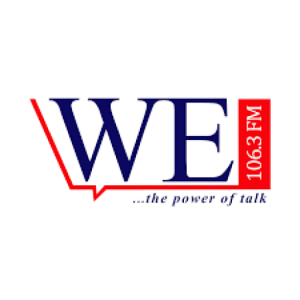For Nigerians involved in international trade, travel, or financial dealings, tracking the dollar-to-naira exchange rate is a daily necessity. While the Central Bank of Nigeria (CBN) offers official rates, many individuals and businesses turn to the parallel or “black market” for foreign exchange. This article explores the current dollar-to-naira black market rate, why it differs from official rates, and its effects on the economy.
Current Exchange Rates
Today July 31, 2024, the dollar-to-naira exchange rates were as follows:
Black Market (Parallel Market)
- Buying Rate: ₦1,595
- Selling Rate: ₦1,600
Official CBN Rates
- Buying Rate: ₦1,684
- Selling Rate: ₦1,685
The black market rates are significantly lower than those offered by the CBN, making the unofficial market an attractive option for many Nigerians.
Why Do Black Market Rates Fluctuate?
Several factors influence black market rates, and understanding them helps explain the volatility:
- Economic Policies: Decisions by the Nigerian government and the CBN, such as interest rate adjustments or inflation controls, directly affect the naira’s value. When policies fail to instill confidence, the currency weakens, pushing people to seek better rates in the parallel market.
- Supply and Demand: The availability of foreign currencies, especially dollars, plays a huge role. When supply is scarce and demand is high, the naira loses value, and black market rates rise.
- Political Stability: Investor confidence hinges on Nigeria’s political climate. Unrest, elections, or uncertainty can weaken the naira, while stability tends to bolster it.
- Global Economic Trends: Nigeria’s economy is tied to oil, its primary export. A drop in global oil prices or international economic instability can negatively impact the naira’s value.
Why the Difference Between Official and Black Market Rates?
The disparity between CBN rates and black market rates arises from:
- Limited Supply in Official Channels: The CBN often struggles to meet demand for foreign exchange, pushing individuals to seek alternatives.
- Regulatory Barriers: Restrictions on forex transactions through banks leave many Nigerians unable to access dollars at official rates.
- Economic Instability: Rising inflation and oil price fluctuations force many to use the black market to avoid unfavorable bank rates.
Impact on the Economy
The prevalence of black market transactions has mixed effects on Nigeria’s economy:
- Inflation: The high cost of dollars in the black market increases the price of imported goods, worsening inflation.
- Foreign Investment: Economic instability and dual exchange rates deter potential investors, as it becomes harder to predict profits.
- Trade Balance: While exporters may benefit from higher exchange rates, importers face steeper costs, leading to an imbalance.
Navigating the Parallel Market Safely
For those who rely on the black market for foreign exchange, here are some tips to reduce risks:
- Verify Rates: Check reliable platforms like Aboki FX for up-to-date rates before making transactions.
- Use Trusted Dealers: Engage with reputable Bureau De Change operators to avoid scams or fraud.
Other Currency Exchange Rates
Pounds to Naira (CBN Rates)
- Buying Rate: ₦2,139
- Selling Rate: ₦2,140
Euro to Naira (Black Market Rates)
- Buying Rate: ₦1,778
- Selling Rate: ₦1,779
Online Exchange Platforms
In addition to physical forex markets, online platforms like Geegpay and Grey provide competitive exchange rates. Their rates on July 31, 2024, are:
Geegpay Rates
- EUR (€): ₦1,690 (Buying), ₦1,695 (Selling)
- GBP (£): ₦1,950 (Buying), ₦1,965 (Selling)
- USD ($): ₦1,504 (Buying), ₦1,570 (Selling)
Grey Rates
- EUR (€): ₦1,640 (Buying), ₦1,719 (Selling)
- GBP (£): ₦1,902 (Buying), ₦2,015 (Selling)
- USD ($): ₦1,550 (Buying), ₦1,570 (Selling)
FAQs About Dollar-to-Naira Exchange Rates
- How much is the dollar to naira today?
- In the black market, the buying rate is ₦1,595, while the selling rate is ₦1,600.
- Why are black market rates higher than official rates?
- The black market is influenced by supply and demand, regulatory restrictions, and Nigeria’s economic instability.
- Is trading in the black market legal?
- While not explicitly illegal, the CBN discourages black market transactions, as they operate outside its control.
- What are the risks of using the black market?
- Risks include fluctuating rates, scams, and the potential for legal consequences.
- Can the CBN control black market rates?
- The CBN can influence rates indirectly through policies and interventions, but direct control remains limited.
The Rising Cost of Kerosene in Nigeria
In other economic news, the National Bureau of Statistics (NBS) reported that the price of kerosene reached ₦1,555 per liter in June 2024. This marks a 7.22% increase from ₦1,450 in May 2024. Compared to June 2023, when kerosene sold for ₦1,236 per liter, the price has surged by 25.73%.
The price hike varies across states. Kaduna, Benue, and Zamfara reported the highest increases, while Kebbi, Taraba, and Sokoto saw more stable rates.
